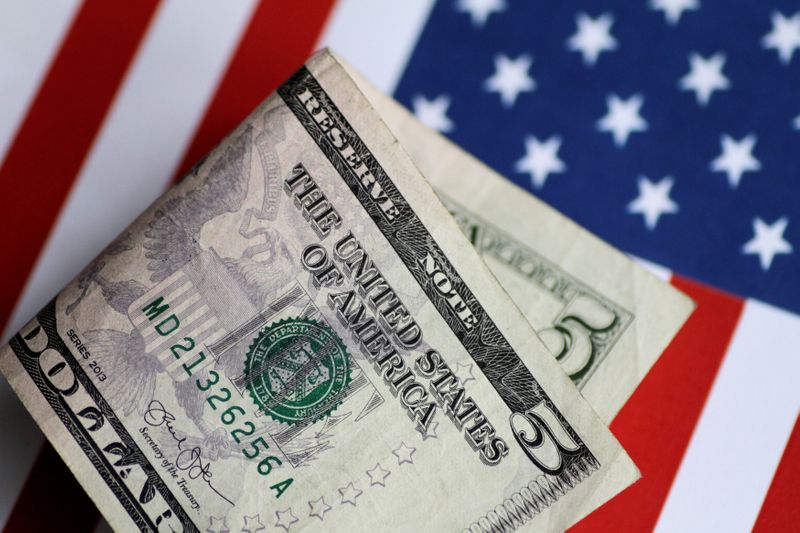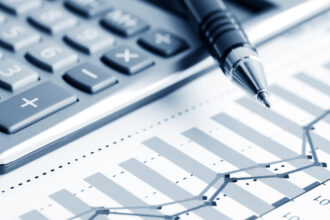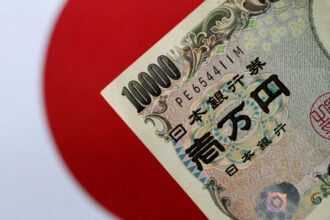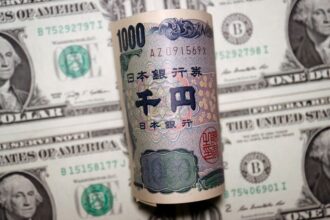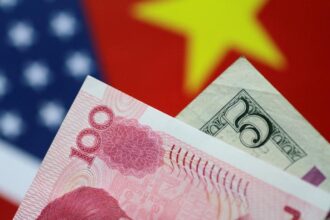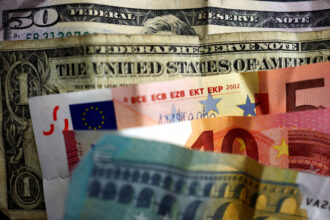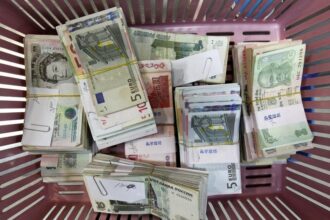Investing.com – The U.S. dollar gained in Europe Thursday, climbing to a two-month high on rising fears of a U.S. default as Fitch threatens a rating downgrade.
At 02:55 ET (06:55 GMT), the , which tracks the greenback against a basket of six other currencies, rose 0.2% to 103.955, just below the 104.05 overnight peak, the highest level since mid-March.
The dollar’s safe haven status has meant that it has benefited from the lack of progress in the talks to lift the U.S. government’s $31.4 trillion debt ceiling, with the early-June deadline that Treasury Secretary Janet Yellen said is when it’s “highly likely” that her department will run out of money drawing nearer.
This uncertainty has resulted in ratings agency Fitch putting the United States’ prized “AAA” rating on watch for a possible downgrade, adding to the jitters in global markets.
“Fitch still expects a resolution to the debt limit before the X-date,” the credit agency said in a report.
“However, we believe risks have risen that the debt limit will not be raised or suspended before the X-date and consequently that the government could begin to miss payments on some of its obligations.”
The dollar has also been boosted by a more hawkish view of the Federal Reserve’s monetary policy actions this year, with the U.S. economy proving resilient to the aggressive tightening to date.
from the Fed’s last meeting, released Wednesday, showed that officials were divided over whether further interest-rate increases would be necessary to lower inflation, but the labor market and price pressures have all proven more resilient than expected following that May meeting.
Data due for release later Thursday include U.S. weekly and a second estimate of first-quarter U.S. .
Elsewhere, fell 0.1% to 1.0739, close to a two-month low, after data released early Thursday showed that the , the largest in Europe, contracted slightly in the first quarter of 2023 compared with the previous three months, thereby entering recession.
Officials at the have tended to point towards further interest rate increases in order to tame , with Governing Council member Bostjan Vasle the latest to do so.
However, growth is proving hard to find in the region, and this tone could soon change.
Bundesbank head and ECB chief economist are both scheduled to speak later this session, and their comments are likely to be studied carefully.
edged lower to 1.2363, not far removed from its weakest level since April 3, while the risk-sensitive dropped slightly to 0.6541.
drifted lower to 139.45, just off a six-month high, with the yen suffering after yields extended to highs not seen since mid-March.
rose 0.1% to 7.0685, with the pair near a near six-month high as fears of a renewed COVID outbreak added to concerns over slowing economic growth in China.
rose 0.1% to 19.9163 ahead of the latest monetary policy decision by . It is expected to hold rates unchanged for a third consecutive month as it tries to keep the lira stable just days before a presidential runoff.
Read the full article here


